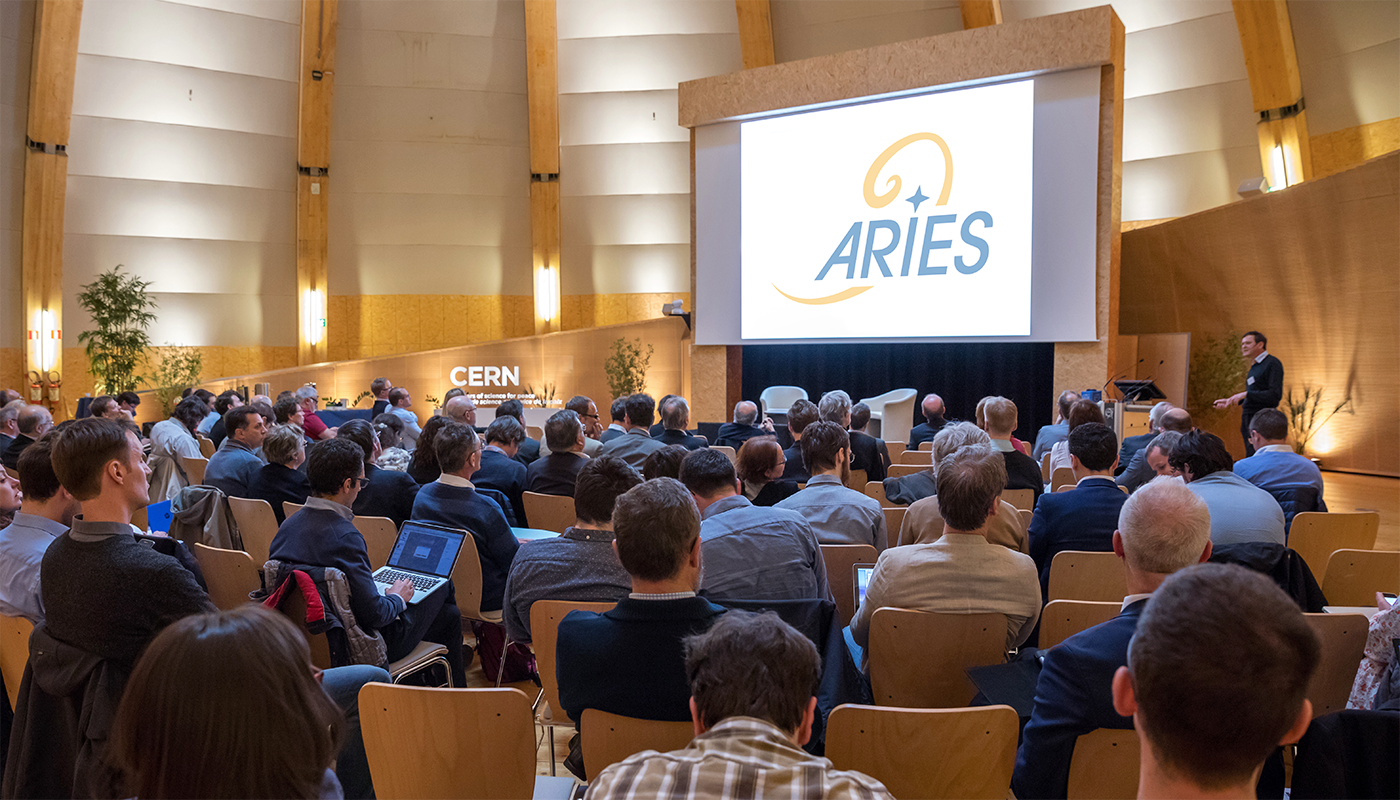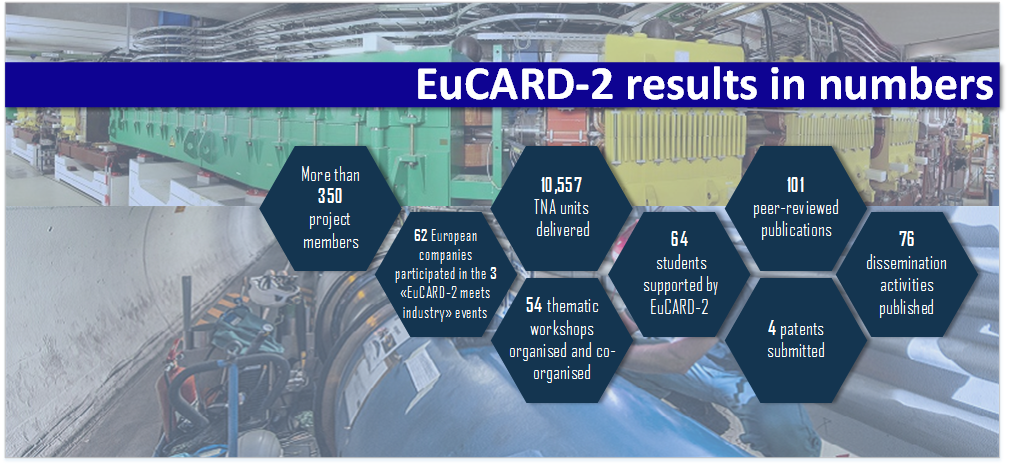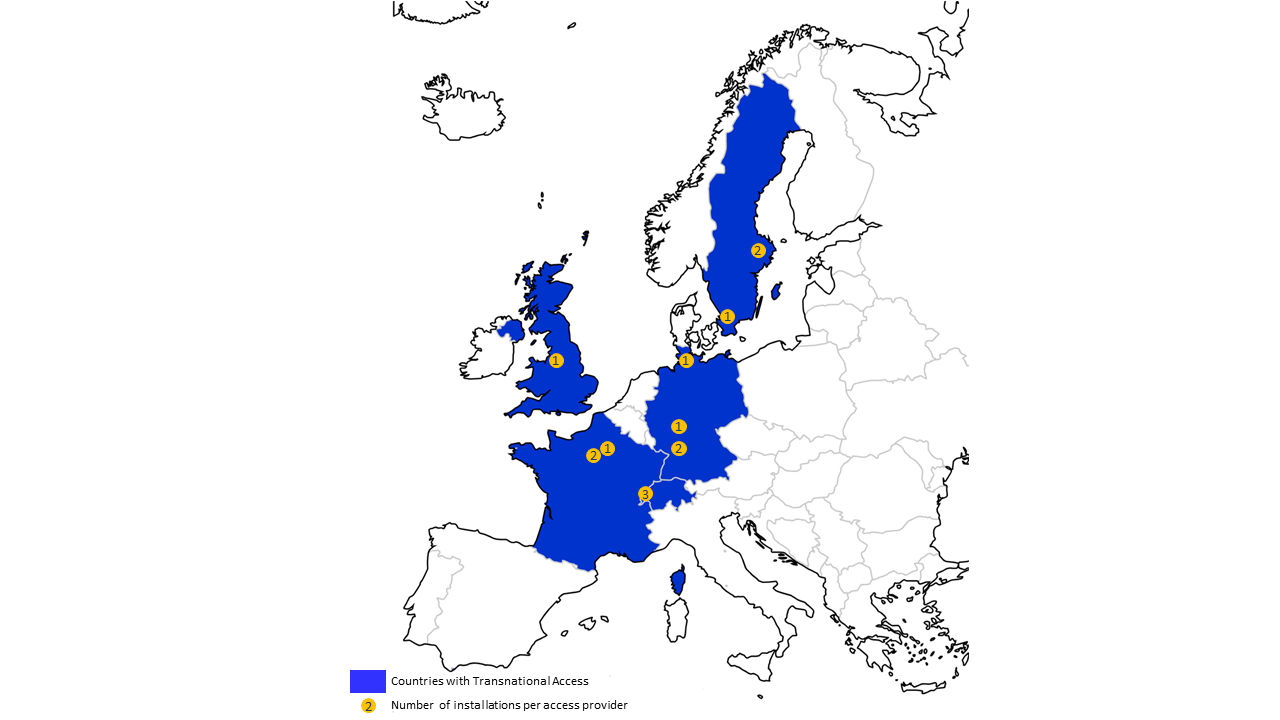![]() From EuCARD-2 to ARIES
From EuCARD-2 to ARIES
Jennifer Toes (CERN)

ARIES project members attend the kick-off meeting talks at CERN, 4-5th May 2017 (Image: CERN)
As the particle accelerator R&D project EuCARD-2 comes to an end, its entrepreneurial and collaborative spirit lives on in ARIES, Accelerator Research and Innovation for European Science and Society, which kicked off at CERN in May 2017.
EuCARD-2 officially ended its activity in April 2017, after four years of international collaboration between academics and members of industry. The project aimed to connect different European actors in accelerator science, enhance collaboration and concentrate common resources on shared goals.
Mobilising more than 350 people, EuCARD-2 produced a wealth of novel ideas for future accelerators and their energy management and applications. Highlights of the final results include patents and crucial advances in four fields: high-temperature superconductivity, materials for accelerators, superconducting coatings, and high-quality plasma-accelerated beams.

EuCARD-2 results in numbers (Image: CERN)
Building on the knowledge, technology and partnerships established under EuCARD-2, ARIES will bring together 41 participants from 18 European countries, including 7 industrial partners. The project officially launched its four-year activity programme as of 1st May 2017 and gathered at CERN over 4-5th May for a kick-off meeting. The project is co-funded via a contribution of €10 million from the European Commission under the Horizon 2020 programme.
The project participants include major European accelerator laboratories, universities, scientific and technical institutes, and industrial partners. This consortium increases the opportunities for international collaboration, knowledge and technology transfer across different fields of scientific research and to society, and puts particular focus on innovation of new technology, with a view to maximising its attractiveness to industry.
This effort ultimately aims to upgrade and enhance current accelerator infrastructures and their related technology, secure the sustainability of accelerator science for the future, and further integrate the accelerator research community in Europe.
The work programme of the project will pay particular attention to developing new accelerator concepts, creating new technology for superconductors and superconducting coatings, and optimising accelerator energy efficiency and thermal management.
The ARIES Coordinator, Maurizio Vretenar (CERN), said, “ARIES is a new major step in collaborative research for particle accelerator R&D. By integrating more countries and more industry and by enhancing innovation, training, access to test facilities and societal applications, the project will have a strong and long-term impact on European science and society.”
Under the ARIES Transnational Access programme, 14 facilities will be made available to researchers for material, magnet, radio-frequency, plasma acceleration, and electron and proton beam testing.

Transnational Access facilities
Developing partnerships with industry and understanding areas of common interest is crucial for transferring knowledge and technology between fields, and ensuring future technologies are viable in the market.
As such, ARIES will organise a series of “Academia meets Industry” events, and will provide of a “Proof of Concept” innovation fund, which will offer researchers the opportunity to develop spin-off technology with societal applications.
